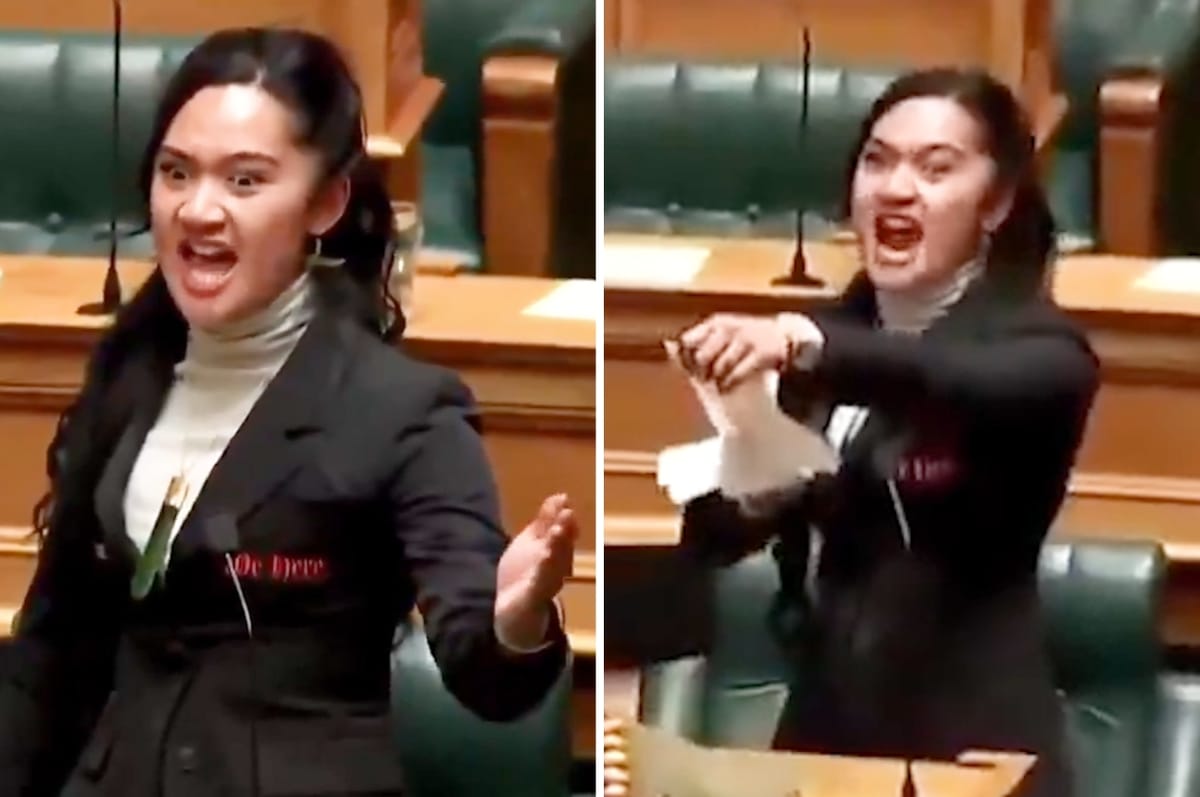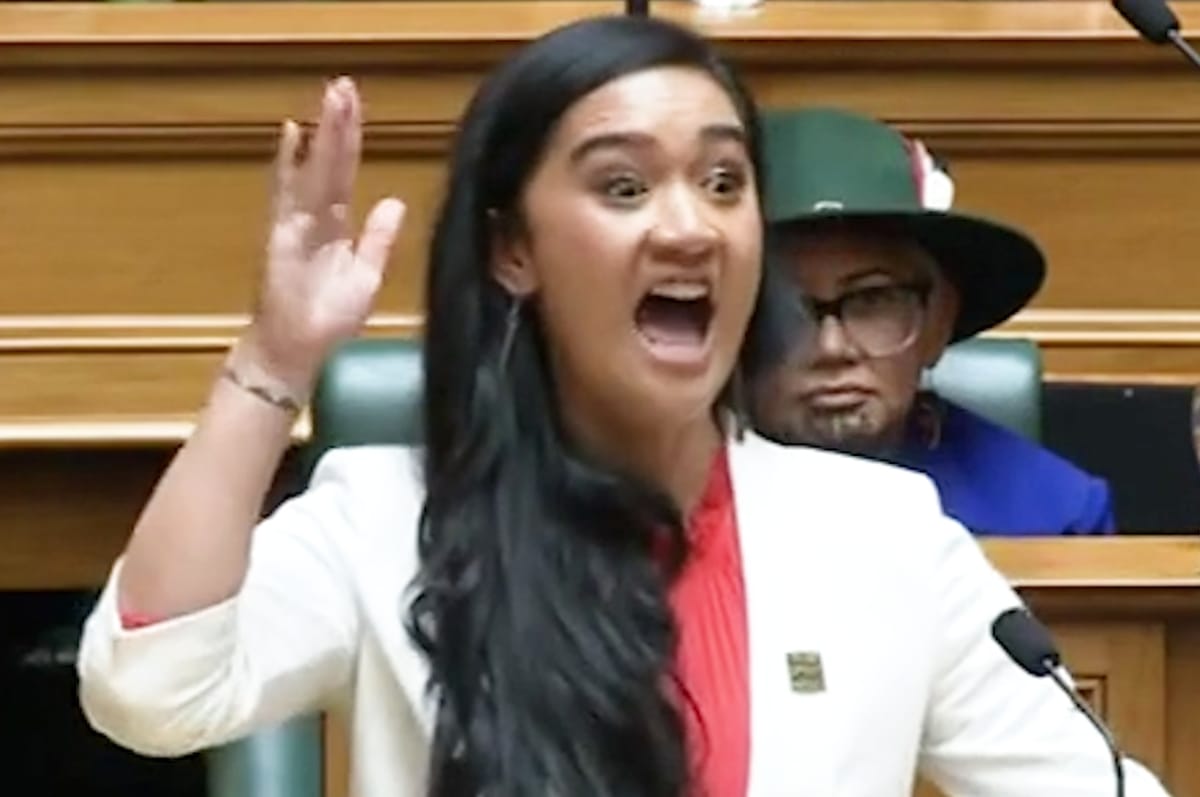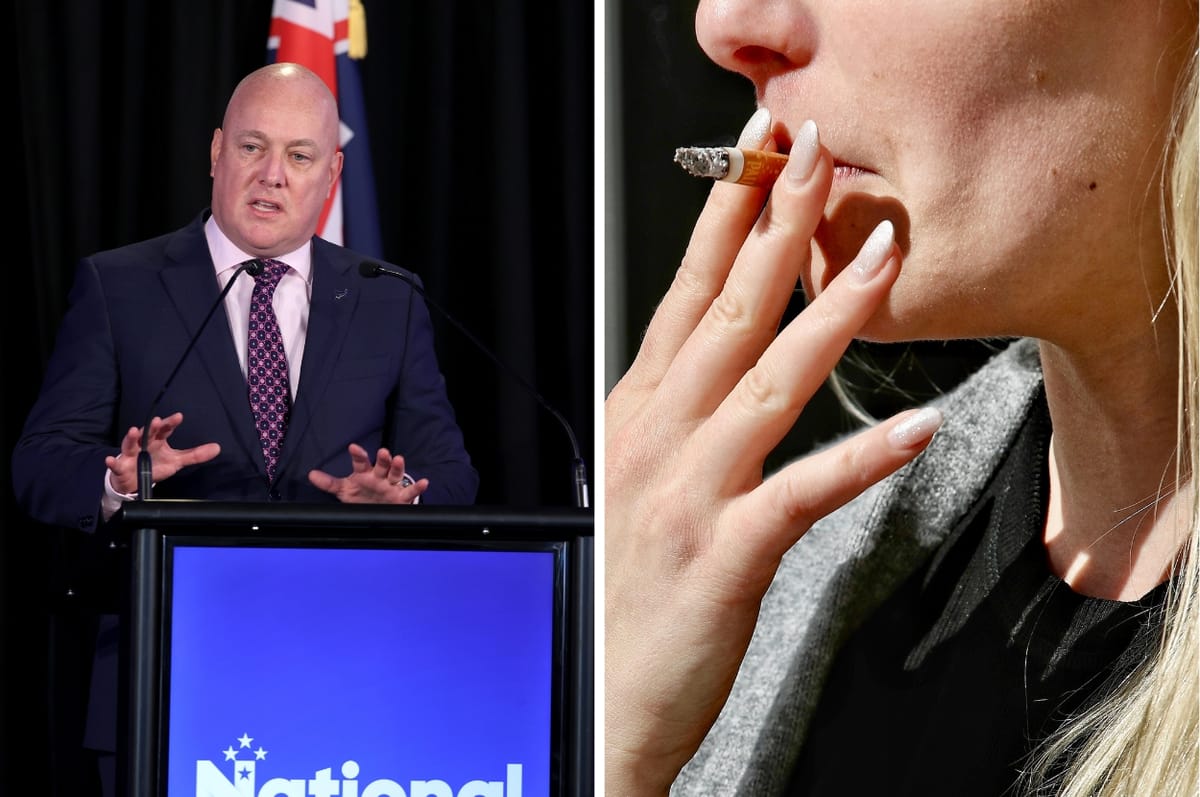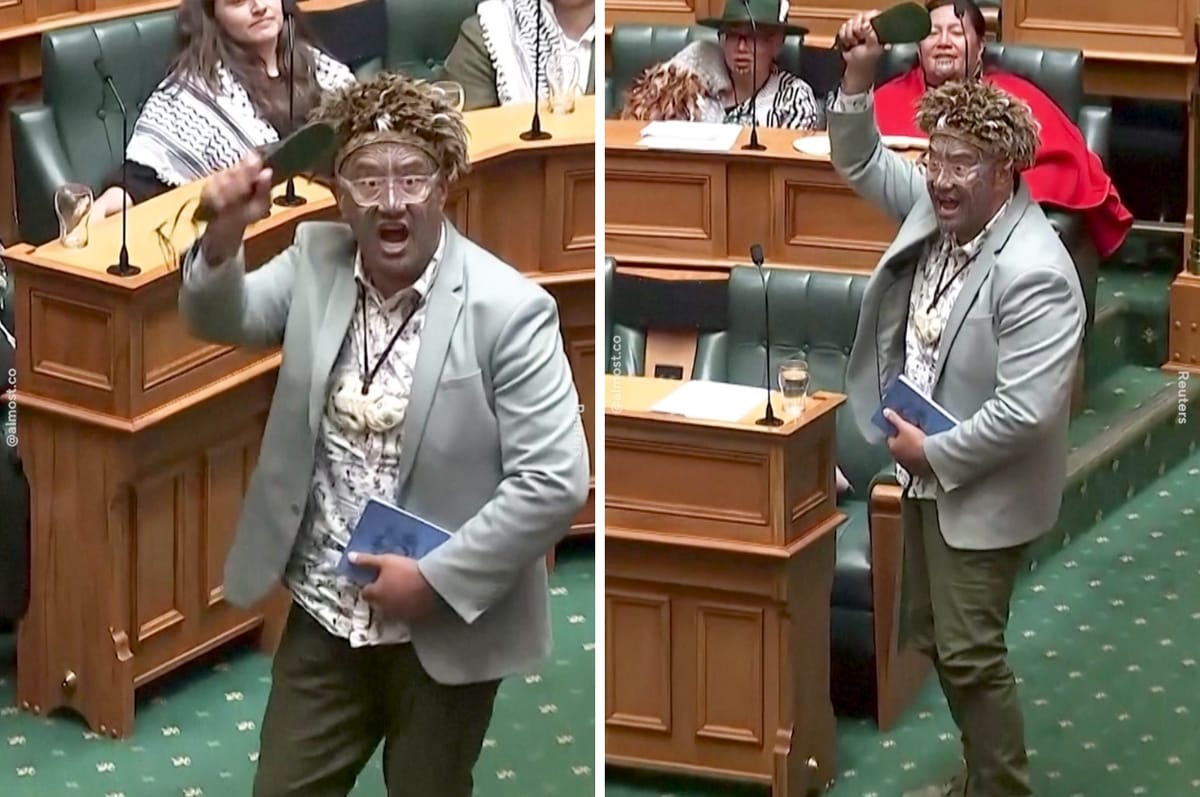New Zealand’s Youngest Māori MP Led A Haka In Parliament And Tore Up A Bill To Roll Back Indigenous Rights
The controversial new bill would change the Treaty of Waitangi that promised Māori people rights over their land and culture in return for British governance.

Māori lawmakers disrupted New Zealand’s parliament and performed a haka – a traditional Māori war dance and chant – to protest a controversial bill that would change the Treaty of Waitangi.
This treaty, signed in 1840, is a foundational document between the British Crown and more than 500 Māori leaders, promising Indigenous Māori people rights over their land and culture in return for British governance.
The new bill, proposed by the ACT New Zealand party, a junior partner in the country's center-right coalition government, suggests that these rights should extend to all New Zealanders.
Many Māori, who represent about 20% of the country’s population, fear this would weaken their historic rights.
On Thursday, Nov. 14, just as the MPs were about to vote on the bill, the country’s youngest MP, 22-year-old Hana-Rawhiti Maipi-Clarke, from the Te Pāti Māori party, began a haka in protest.
She also tore up a copy of the bill as she began to chant the haka, drawing support from her party members, opposition lawmakers and spectators in the public gallery, who all joined in the haka, according to the Time.
The Speaker of the House struggled to regain order as the haka grew louder.
In an attempt to calm the situation, he ordered the public gallery to be cleared and eventually suspended proceedings briefly.
Maipi-Clarke was later suspended from parliament for leading the haka and disrupting the parliament, according to Radio New Zealand.
ACT party leader David Seymour, who introduced the bill, argued that people opposing the bill were trying to create fear and division, according to Reuters.
“My mission is to empower every person,” he said
The bill has also faced widespread criticism from the general public, with hundreds of people participating in an ongoing nine day protest march from New Zealand’s north to the capital, Wellington.
They are expected to arrive on Tuesday Nov. 19, when tens of thousands of people are expected to join a major rally.
Although the bill passed its first reading, it’s unlikely to become law.
Key coalition partners, including Prime Minister Christopher Luxon’s National Party and New Zealand First, have indicated they won’t support it further, despite backing it initially under the coalition agreement.
"You do not go negate, with a single stroke of a pen, 184 years of debate and discussion, with a bill that I think is very simplistic," Luxon said while speaking with the reporters after the session.
Since taking power in November 2023, the ruling right-wing government has begun rolling back Indigenous rights.
It announced plans to close the Māori Health Authority, Te Aka Whai Ora, set up by former prime minister Jacinda Ardern’s government and change the names of some departments from Māori to English.
The move was widely criticized by health experts, who say it will be particularly damaging for Māori communities, which have higher smoking rates and associated health risks.
More On Māori Rights In New Zealand










